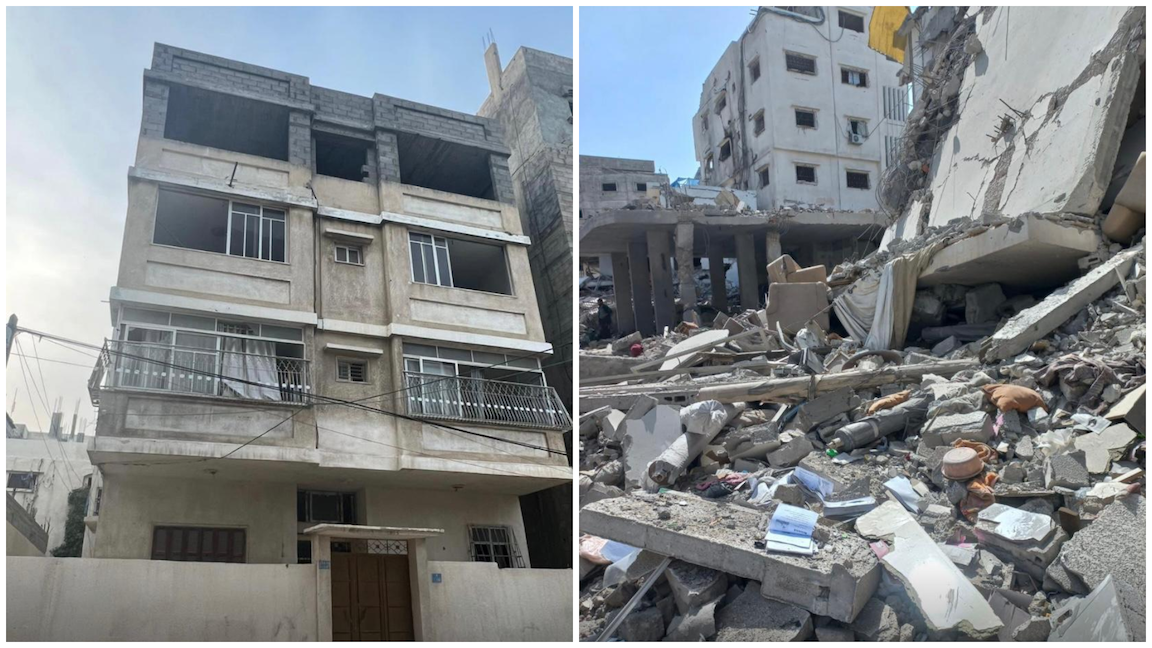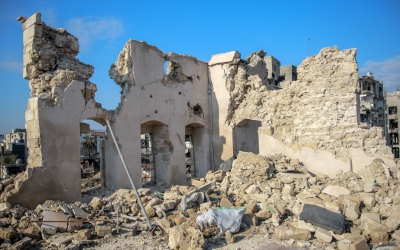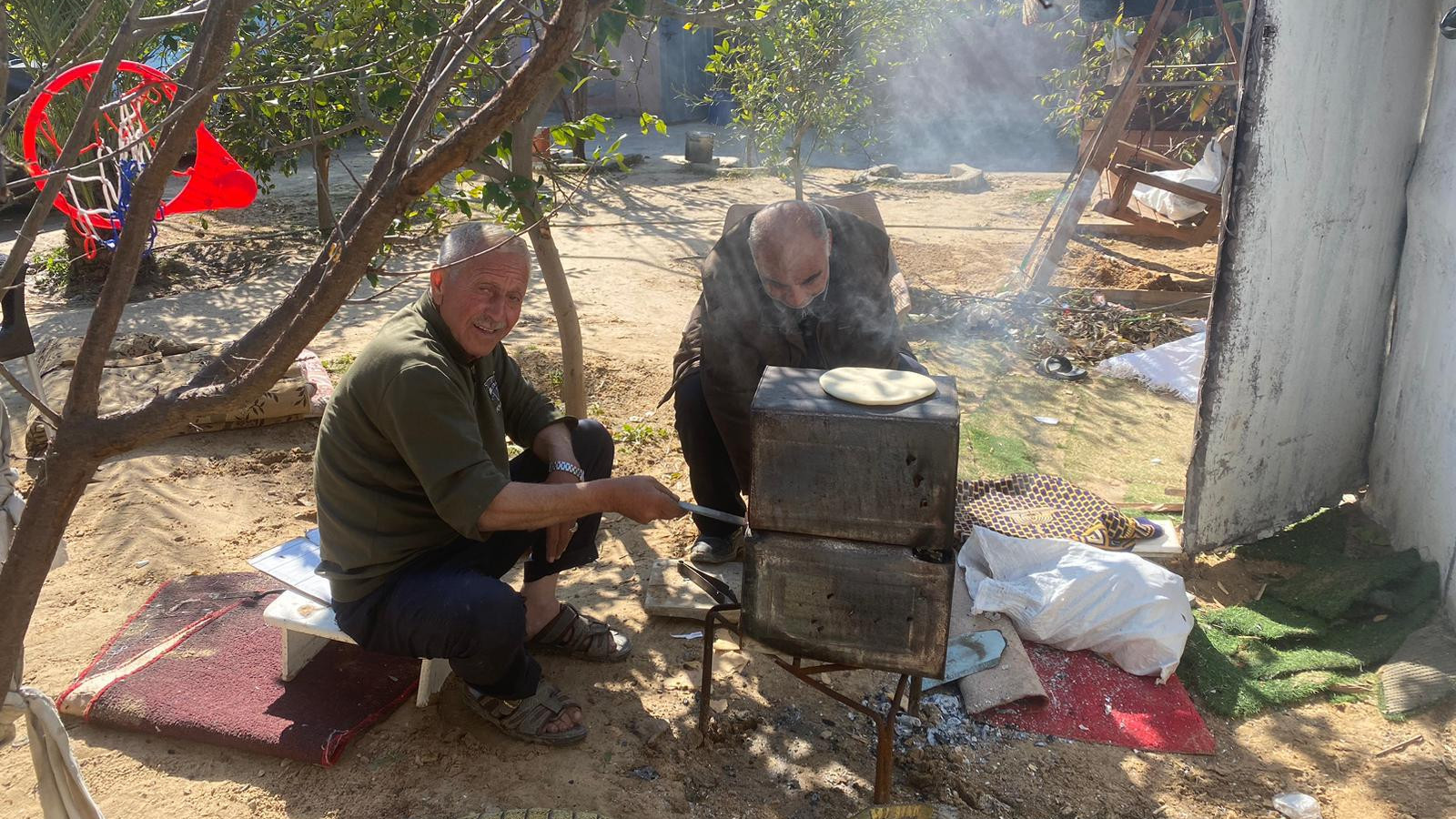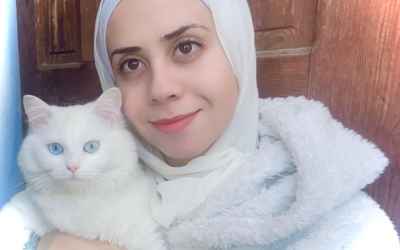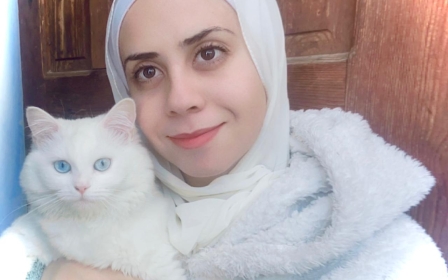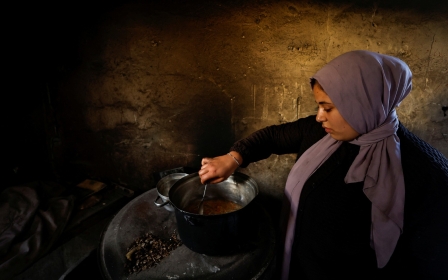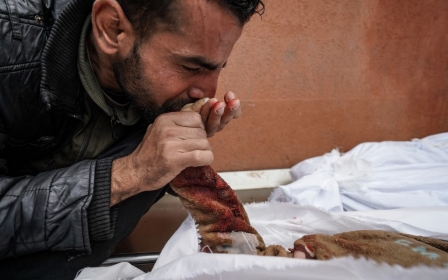Israel has destroyed my family home but the love that built it remains
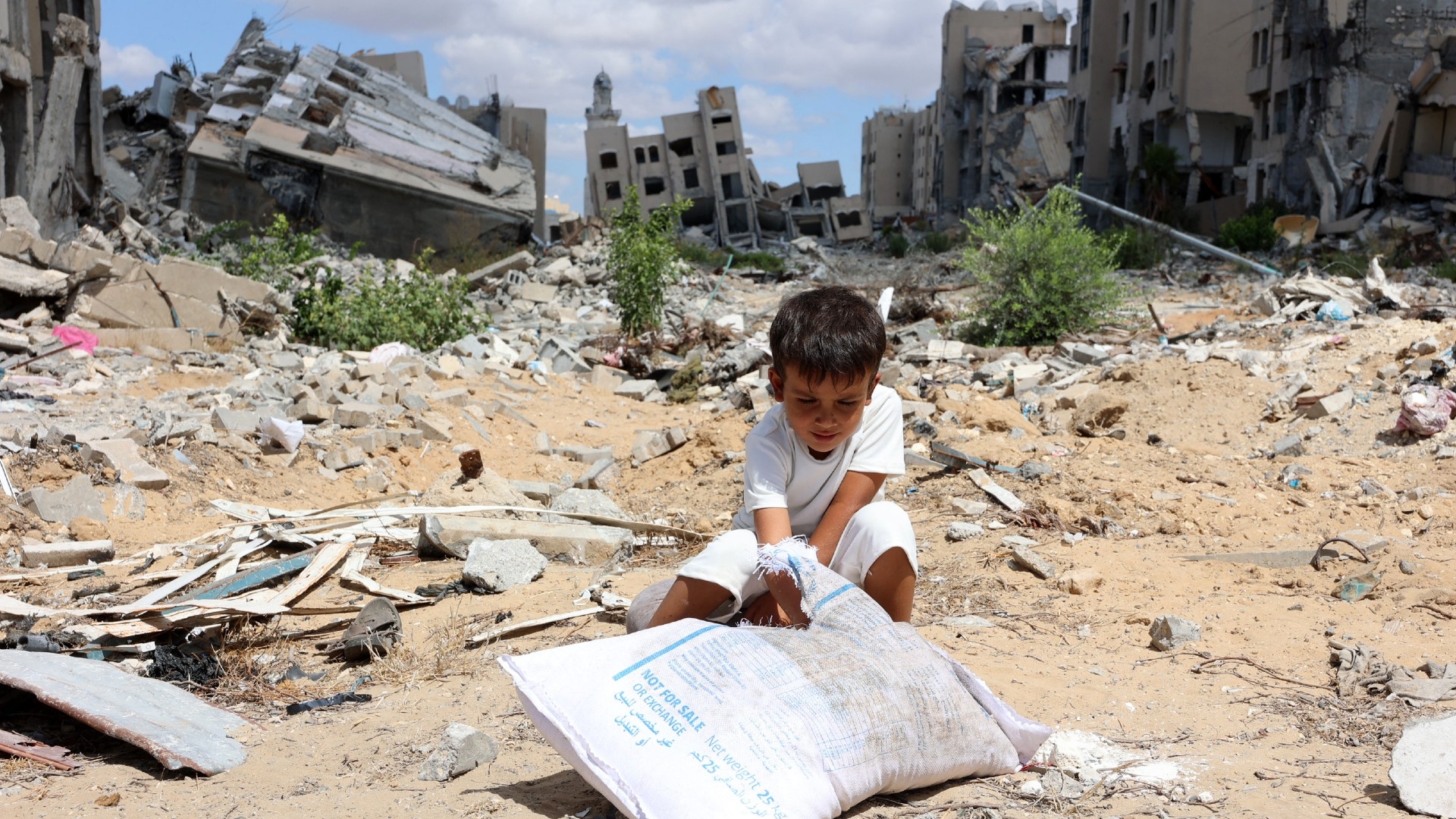
In my 26 years of being alive, I have experienced at least four large-scale Israeli assaults on Gaza - waged in 2008-2009, 2012, 2014, and 2021 - each one resulting in mass civilian casualties.
Since October 2023, I have been living through one of the worst wars in our history.
Although wars, bombardment, and a crushing 17-year-long blockade were a constant in my life, I could never become accustomed to death and destruction.
New MEE newsletter: Jerusalem Dispatch
Sign up to get the latest insights and analysis on Israel-Palestine, alongside Turkey Unpacked and other MEE newsletters
News of bombs collapsing the homes of my relatives, neighbours, and friends was always distressing. Still, I never understood how devastating an experience it was for them until tragedy - quite literally - hit my own doorstep.
During each war, we would often console others by emphasising that material objects and possessions like money could be replaced.
For Palestinians who experienced the Nakba and suffered loss after loss, the reassurance that their lives could be rebuilt was not just an empty phrase but a necessary outlook for their continued survival.
Despite knowing this, when I lost my childhood home, those words somehow felt hollow. Even if objects could be replaced, the memories forged within the walls of my home could never be.
Wide-scale devastation
On 24 March, during the deadly Israeli military attack and raid on al-Shifa Hospital - which left both the hospital and its surrounding neighbourhoods in ruins - our family, already displaced, received the grim news from a neighbour.
Following the siege, those able to reach their homes and families only found more devastation
Our neighbourhood was located just 800 metres from the hospital. After managing to navigate through its narrow alleyways, our neighbour documented the damage to the area and confirmed that bombs had struck the roof of my family's home.
When my brother called to deliver the news, a wave of sorrow engulfed me as I desperately hoped for a miracle - latching on to the false hope that our place of sanctuary somehow remained intact.
After a two-week raid in which military tanks and snipers encircled the hospital, the Israeli army withdrew from al-Shifa on 1 April. Right away, reports of the horrific atrocities committed against doctors, patients, and displaced families sheltering there surfaced.
Israeli forces had killed at least 300 civilians, with mass graves found both inside and outside the medical complex and entire sections of the hospital - and nearby homes - burned to the ground.
Follow Middle East Eye's live coverage for all the latest on the Israel-Palestine war
Following the siege, those able to reach their homes and families only found more devastation.
My husband ventured into my family's devastated neighbourhood. He returned with the shattering news: our cherished four-story home, which had sheltered my father, two uncles and our families, was now a giant heap of rubble.
I am the only surviving member of my family to remain in northern Gaza. My parents, brothers, uncles, and their families were forcibly displaced from their homes near al-Shifa back in November in search of safety.
Memories turn to debris
Given its proximity to al-Shifa hospital, a declared early target of the Israeli army, my childhood home was always at severe risk of bombardment. Yet my father refused to leave his house until the very last moment - as tanks made their way to the hospital.
On 2 November, my parents made the agonising decision to pack their bags and seek refuge further south in Khan Younis, believing it would be just a matter of days until they could return.
I remained at home in northern Gaza with my husband and infant daughter until the Israeli army launched a military attack on our neighbourhood of al-Daraj in the centre of Gaza City in December.
With no place to turn, we were forced to flee westwards until we found ourselves at my family's vacated home near al-Shifa, settling there for approximately two months.
Once I stepped inside, hope quickly gave way to despair.
Our once vibrant home had become a shadow of its former self - dark, dusty, and damaged. Broken doors, shattered windows and sandy corners filled with debris greeted us at every turn.
The house that I grew up in was always more than the concrete, mortar, and bricks used to build it. Its foundations were laid down by the love, hard work, and dedication of my parents; its history was enriched by the struggles and experiences of my grandparents; and its walls were anchored by the childhood memories that shaped me.
That house was the place where my older brothers, who lived abroad, would return with their friends and families throughout the years.
And it was where I lived for more than two decades until I entered the next phase of my life as a wife and mother. Each visit home was a journey through my memories, with every corner of the house echoing the best moments of my life.
With its creaky floors and cracked walls, my childhood home was a cosy haven that my grandfather had built over 30 years ago. In Gaza, many families live together in multi-storied buildings that house three, sometimes four, generations of a single family.
Since 7 October, we've seen hundreds of families - entire bloodlines - wiped out.
In my family's living room, with its overstuffed armchairs and knitted throws, countless stories were shared and memories made, creating an atmosphere of warmth and belonging that made visitors feel like they were a part of our family.
I still remember their kind words about feeling at home in our place and commenting on its warm and loving environment.
I also look back fondly on my mother's frequent expressions of gratitude for our home. Never taking anything for granted, she'd return home after a short outing, and say: "Oh, Noor, how beautiful our home is!"
For my mum, our house was her paradise. She cherished every aspect of it, finding peace in her daily routine and in little things like drinking a cup of tea in the evening after finishing her housework and waiting for my father to return from work.
My mother taught me how to love a home, not simply live in it but to see and treat it as my refuge. After all, the sense of love and safety my parents fostered within its walls was the only refuge we had.
Preserving legacies
Despite the cruelty of my own situation - enduring forced displacement with my then nine-month-old baby while fearing the loss of my own house - I couldn't help but cry for the absence of my parents and siblings.
My family's story is one of many, a poignant reminder of the human cost of conflict on individuals and families
Memories of happier moments flooded my thoughts - my mother's sweet, gentle smile in the kitchen and my father's reassuring conversations in the living room. Their absence was heart-wrenching.
Still, despite the heaviness of my heart, I was comforted by the fact that my family's home stood resilient and continued to provide shelter for my young family as we anticipated the imminent return of my parents, siblings, and extended family.
We eventually fled again to another shelter before that day ever came.
It has now been over ten months since I last saw and embraced my mother, father, and brothers. Many are facing new hardships, whether in Egypt or running from place to place to escape Israel's merciless bombs - all while dreaming of the day they could return home and be reunited.
Israel's destruction of Gaza - its homes, schools, universities, farmland, and anything that would make it inhabitable - as well as the hunger, killing, and injury inflicted - has reached catastrophic levels. According to recent reports, the estimated 42m tonnes of rubble and debris to which Gaza has been reduced may take up to 15 years to clear out and cost at least $700m.
Above all, what haunts the people of Gaza is the number of remains that will be uncovered underneath the fallen buildings - those who were once our neighbours, cousins, friends, sons, and daughters. In June, the reputable medical journal The Lancet warned that the death toll could exceed 186,000 people.
Yet Israel's genocidal campaign in Gaza is not limited to its relentless killing spree that claimed 40,000 lives in 10 months. The deliberate targeting of civilian infrastructure has been a key feature of its military strategy since October, in what appears to be an effort to erase all memory or any trace of Palestinians.
My family’s story is just one of many, a poignant reminder of the human cost of conflict on individuals and families. And we are undoubtedly luckier than the hundreds of thousands of families now burning in tents, suffering from malnutrition, and battling life-threatening diseases.
Though our material possessions may be destroyed, the essence of what makes a home - family, love and mutual understanding - remains unbreakable. It is these core foundations that enable me to write these words in the spirit of hope, even as I am filled with profound grief over such immeasurable loss.
Our commitment to family and community and the will to survive keep us moving forward as we are determined to create new memories and preserve the legacy of all we've lost.
The views expressed in this article belong to the author and do not necessarily reflect the editorial policy of Middle East Eye.
Middle East Eye delivers independent and unrivalled coverage and analysis of the Middle East, North Africa and beyond. To learn more about republishing this content and the associated fees, please fill out this form. More about MEE can be found here.


